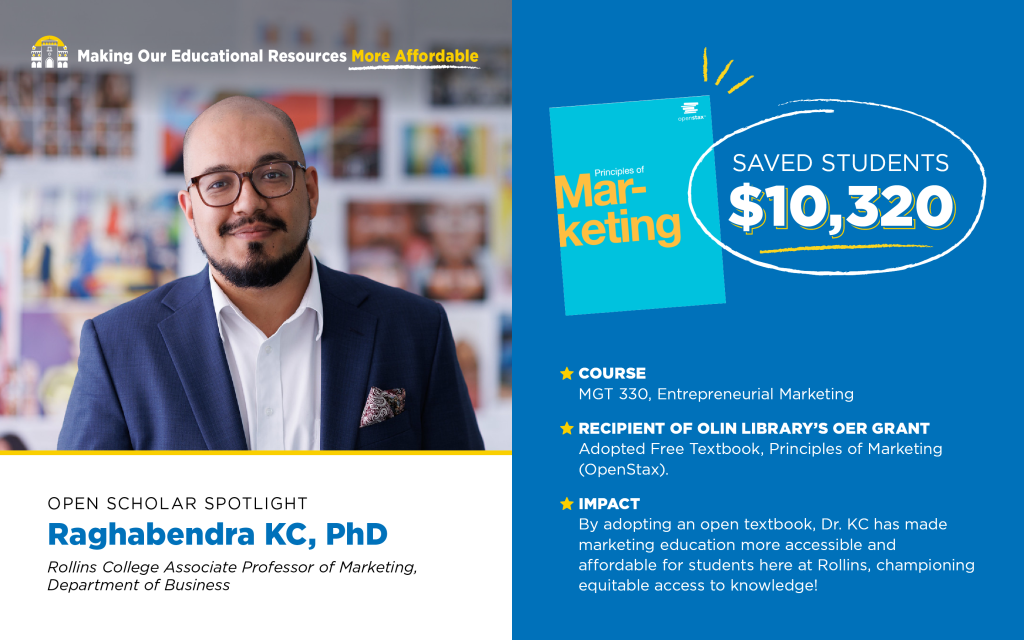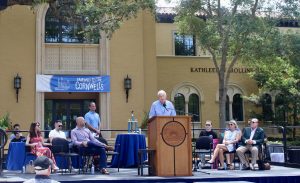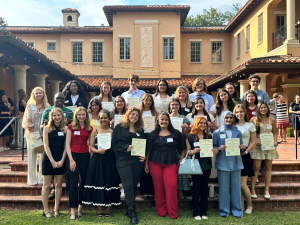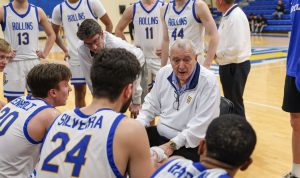
At Rollins College, Open Access (OA) and Open Educational Resources (OER) are making education affordable and accessible. By removing costly paywalls for research and replacing expensive textbooks with free alternatives, these initiatives are transforming learning and supporting students financially.
The Shift to Open Resources
Traditional textbooks can be a significant expense. “When Rollins students were asked how they would spend money saved from not buying textbooks, they listed essentials like food, medicine, rent, and even mental health care,” said the Olin Library Discussion post on MyRollins. Recognizing this impact, Rollins faculty have worked to integrate OER into their courses, ensuring students high-quality, cost-free materials.
The business department has led the way, with all marketing courses now using free textbooks. This transition required careful planning—Professor Raghabendra KC, for example, spent two semesters restructuring his course around an OpenStax textbook, dedicating about an hour per week for 10 weeks to make the change.
“With OpenStax providing a range of business courses, this means business majors could have access to high-quality materials without the financial strain,” said KC.
Faculty Leading the Change
Rollins faculty have already saved students $19,778 across multiple disciplines through OER initiatives. In addition to marketing courses, other success stories include the French and sociology departments.
In the French department, Constance Castillo, Sana Alaya Seghair, and Nouha Gammar authored a Francophone-centered textbook for French 201 (Intermediate French I). Published through Rollins Digital Press, their work has saved students $4,898.25 while providing a diverse and engaging approach to language learning.
In the sociology department, Ja’Nya Jenoch integrated open resources into SOC 215 (Stats & Data Analysis for Social Science), saving students $4,560. By combining original content with open-access materials, Jenoch has made the course more accessible and affordable.
“This isn’t just random content—these are high-quality resources that are just as good as, if not better than, traditional books,” said Derek Malone, Olin Library Dean.
OER Grants
To support faculty in adopting OER, Olin Library offers two grants: OER Explore Grant and OER Implement Grant. Explore helps faculty evaluate three alternatives to high-cost textbooks over three months. Findings might confirm the need for a traditional textbook, identify a quality OER, or lead to the creation of a new resource via Rollins Digital Press. OER Implement Grant provides library support to replace a textbook with an OER. Faculty must use the new materials for at least two semesters, track student’s savings, and benefit from peer-review and an ISBN assignment.
A Commitment to Open Knowledge
Open Educational Resources isn’t just about cost savings—it also enhances learning through customization. Faculty can modify OER to fit their course needs, ensuring materials are current and relevant. This flexibility improves the educational experience and supports diverse learning styles.
Jennifer Queen, psychology professor, contributed to this movement by curating “Thinking with Things,” an interdisciplinary collection of lesson plans on the OER Common platform. These adaptable resources help instructors engage students in innovative ways without the financial burden of traditional textbooks.
As part of Open Education Week last month (March 3-7), Rollins celebrated faculty who are reshaping learning through OER. These efforts make education more equitable, reduce financial stress for students, and demonstrate that high quality, cost-free resources are not just possible but already thriving at Rollins.













Comments are closed.